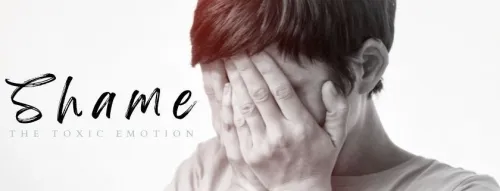SHAME | In-house Training
- Friday 1 January 2027
- 1:00 am - 1:00 am
- Your Location
| Customer Rating | 4.77 out of 5 ⭐ |
|---|---|
| CPD Hrs | 7 |
| Includes | Handbook and certificate |
In-house training: If you have a group of staff we can arrange training at your workplace. Email us.
The Toxic Emotion
Shame is painful, hard-wired, rapid response, primitive emotion. It is often activated by the loss of relationship connection or threat of demotion or exclusion. Being an emotional experience that can be intensely painful, shame has the capacity to negatively impact self worth and how a person relates to others. The experience of toxic, maladaptive shame is so destructive, it is closely associated with most major mental health issues including depression, body image and eating disorders, borderline personality disorder, drug and alcohol abuse, violence , social anxiety disorder, post traumatic stress and suicide. Yet the pain and embarrassment associated with this experience of shame drives it underground where it is suppressed, denied or managed in a way that creates even more distress to self and others.
In recent years the communal norm to hide and avoid shame is being exposed alongside a growing recognition of the importance of naming, understanding and therapeutically treating shame. Shame is seen as a dominant and common experience clients bring to counselling and an underlying reason why many seek therapeutic help. Yet, addressing shame directly with clients is difficult as most clients are either reluctant to talk about their shame or are unaware of it, which leaves it up to the practitioner to approach. If shame is not approached and addressed, it is legitimised.
This workshop aims to discuss and address shame in a practical way by exploring several fundamental themes;
-
What is Shame?
-
Causes
-
Shame’s evolutionary relational purpose
-
Recognising the difference between shame and guilt
-
Social-cultural context of shame
-
External and internal shame
-
Intergenerational shame
-
-
What role does power have in Shame?
-
Shame’s association with the misuse of power
-
- How do clients manage their shame?
- Hiding, denying and living with shame
- How can practitioners respond?
- Recognising our own shame and appropriate use of power
- Engaging and supporting clients in addressing shame
Audience: for Mental Health and Education Professionals at All Levels & Any Professional that Applies Behavioural & Developmental Science to their Practice.
Mental Health Professionals: All mental health professionals including, but not limited to Clinical Counsellors, Psychologists, Psychotherapists, Psychiatrists, Social Workers, Nurses, Occupational Therapists, Hospice and Palliative Care Workers, Youth Workers, Mental Health Workers, Addiction Specialists, Marital & Family Therapists, Child Protection and Disability Workers, Guidance Officers, Speech and Language Therapists, Residential Care Workers and Foster Support Workers, Vocational Rehabilitation Consultants, General Practitioners, and all other mental health professionals looking to enhance their therapeutic skills.
Education Professionals: Professionals who work with children or youth including, but not limited to K–12 School Counsellors, School Paraprofessionals and all other professionals who support behavioural challenges and complex learning needs.
Related products
Internal Family Systems Therapy for Shame and Guilt
An Internal Family Systems Perspective
$95.99 AUDincl GST
Simple Guide to Understanding Shame in Children
What it Is, What Helps and How to Prevent Further Stress or Trauma
$37.99 AUDincl GST















